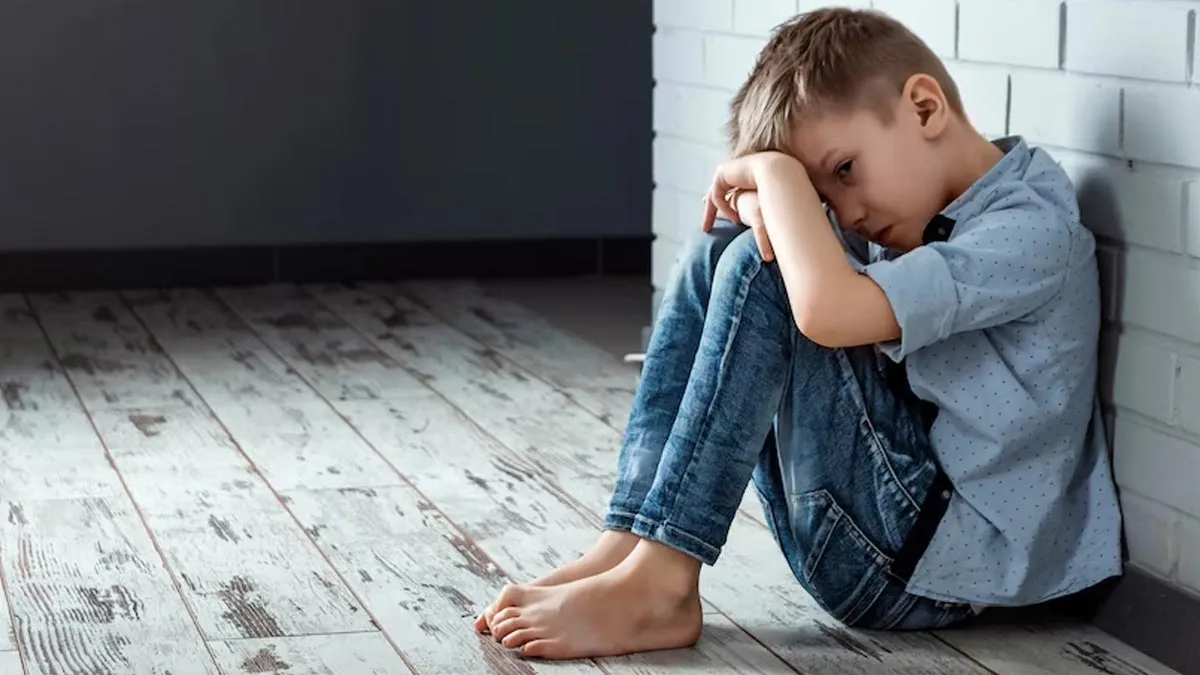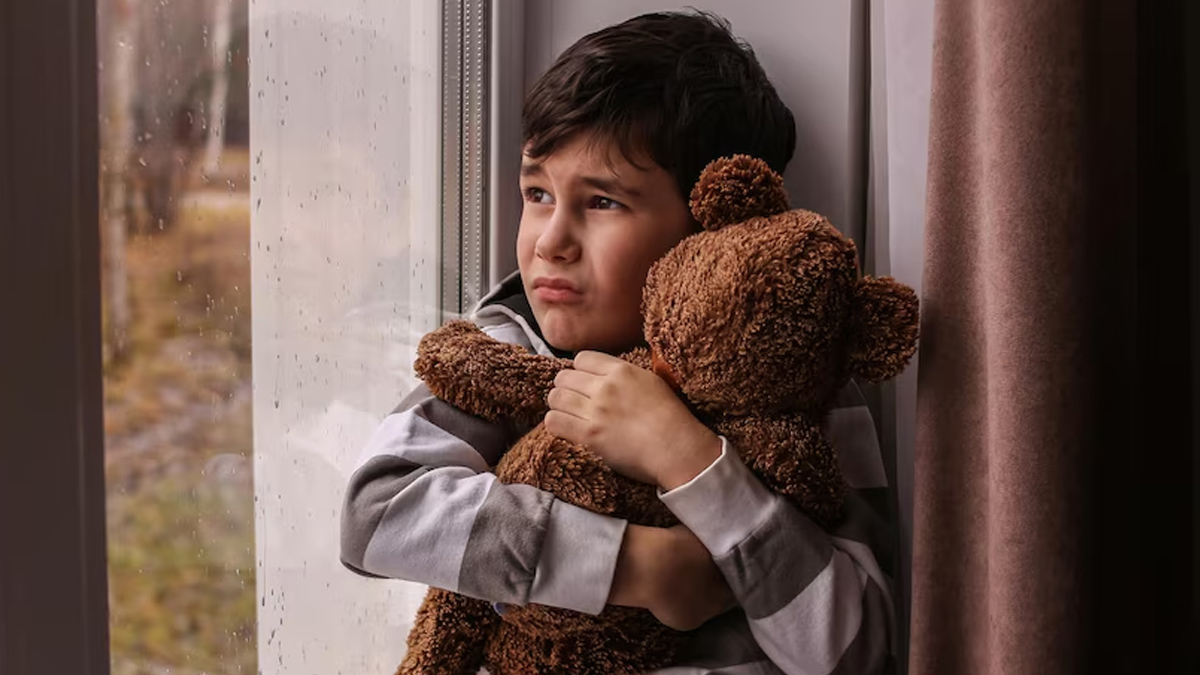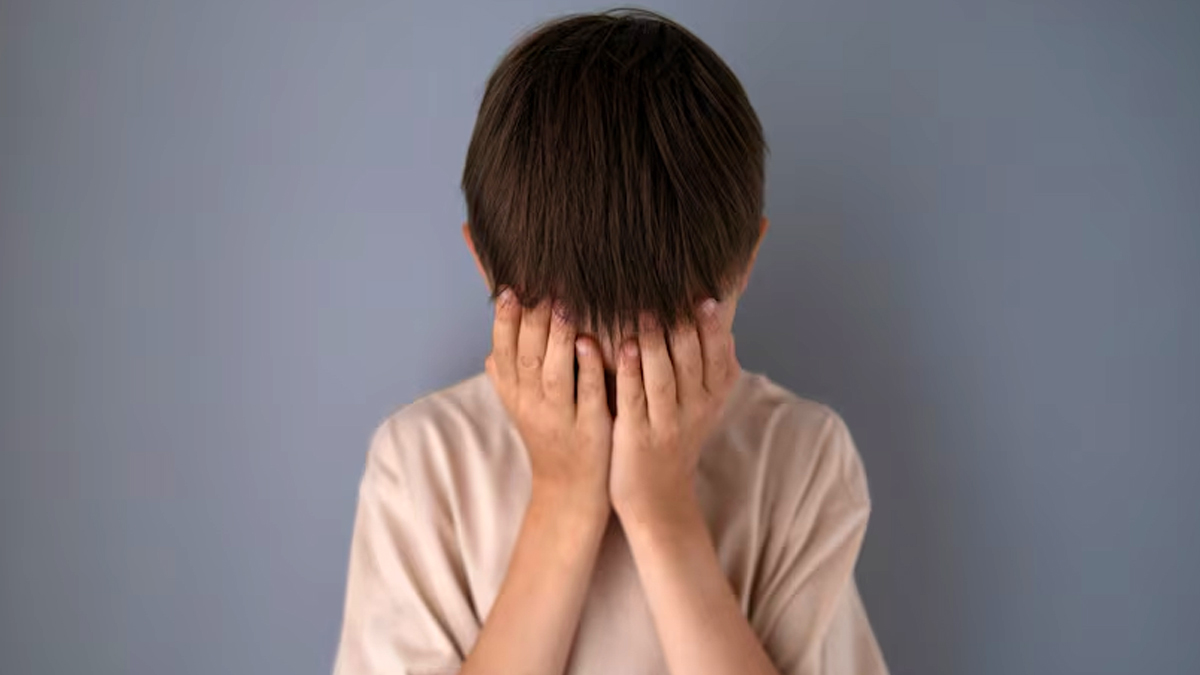
What if the signs were right in front of you, but you missed them? A child who once loved playing with friends now prefers solitude. Another who excelled in school suddenly struggles to focus. In our fast-paced world, it’s easy to overlook subtle changes in children’s behaviour, brushing them off as “just a phase.” But these changes could be a cry for help.
Table of Content:-
Today’s children face a whirlwind of pressures, from academic stress and peer expectations to the hidden dangers of an online world. Their mental health is as vital as their physical health, yet it often goes unnoticed until it’s too late. As parents, educators, and caregivers, recognising the warning signs early can be life-changing. In this article, we’ll explore five key mental health symptoms in kids that demand immediate attention and share actionable steps to support them. Because every child deserves to grow up happy, healthy, and heard.
To understand how to identify those warning signs in your kids, OnlyMyHealth team interacted with Dr Kedar Tilwe, Consultant Psychiatrist, Fortis Hospital Mulund and Hiranandani Hospital, Vashi, Navi Mumbai. He explained, “The increased pressure on children to meet ever-increasing standards and add skill sets in an intensely competitive environment is adding to their burden.” Addressing mental health concerns in children is vital, as early intervention ensures better outcomes.
Here are five mental health symptoms in children that need immediate attention:
1. Sudden Social Isolation or Withdrawn Behaviour

Children are naturally emotionally impressionable, and even harmless gestures can sometimes be misinterpreted. If a child suddenly withdraws from social interactions, whether at home, school, or extracurricular activities, it is crucial to address the issue immediately. Dr Tilwe emphasises, “Sudden withdrawal from interaction should be discussed and addressed at the earliest.” These behaviours could indicate underlying emotional distress or an unresolved issue that needs attention.
2. Symptoms of Attention Deficit Hyperactivity Disorder (ADHD)

ADHD is marked by impulsiveness, hyperactivity, and inattention, and these behaviours must be observed in at least two different settings, such as home and school. If such symptoms are present, a thorough evaluation is necessary. Proper diagnosis and treatment can significantly improve a child’s functioning and quality of life.
Also read: Understanding And Addressing Separation Anxiety In Children: Expert Shares Insights
3. Excessive Online Activity

The digital world can be a double-edged sword for children. Excessive screen time, including online gaming, social media, and academic work, can lead to meltdowns and tantrums when devices are taken away. Parents should monitor both the amount and quality of content consumed. Dr Tilwe advises that parents should take any signs of distress related to screen time as a “red flag” and intervene accordingly.
4. Substance Use
Experimentation with alcohol, tobacco, or cannabis, often driven by peer pressure or impulsivity, requires immediate intervention. Parents should address these incidents effectively and involve a mental health practitioner if necessary. Substance use in children is a serious concern and needs to be tackled with both sensitivity and firmness.
5. Panic Attacks and Anxiety

From exam phobia to social anxiety and specific fears, children may experience a wide range of anxiety-related symptoms. Parents and educators should encourage open, non-judgemental conversations to uncover deeper concerns. Dr Tilwe stresses the importance of seeking professional help when children exhibit signs of persistent sadness, self-harm, or hallucinations, as these are indicative of more severe mental health issues.
Also read: Do You Yell At Your Child When They Throw Tantrums? Experts List Parenting Tips To Follow
How Parents and Educators Can Help
Addressing children’s mental health requires a collaborative effort among parents, educators, and other stakeholders in their development. Dr Tilwe suggests, “Sensitising all stakeholders to the whole spectrum of mental health concerns is perhaps the most important intervention that can help us identify and support our kids better.”

Here are some strategies to support children effectively:
Educate and Sensitise
Create awareness about mental health concerns among parents, teachers, and children themselves. An informed approach can help identify early warning signs and provide timely support.Limit Screen Time
Encourage digital detox activities as a family and educate children on safe online practices. Teaching them to avoid doom scrolling and maintain a healthy relationship with technology is essential.Teach Resilience
Help children develop real-life skills to cope with adversities and build resilience. These skills empower them to navigate challenges confidently.Create a Safe Space
Provide an environment where children feel comfortable sharing their fears, concerns, and expectations. A non-judgemental conversation can work wonders in understanding their struggles.Stay Informed
Maintain regular communication with teachers, coaches, and counsellors to get a clearer picture of your child’s well-being. Feedback from multiple sources can help identify potential issues early.
Children’s mental health is a crucial yet often overlooked aspect of their overall development. By recognising and addressing these symptoms early, parents and educators can ensure children grow into healthy, resilient individuals. Dr Tilwe’s insights serve as a reminder of the importance of timely intervention and collective action to safeguard the mental well-being of the next generation.
Also watch this video
How we keep this article up to date:
We work with experts and keep a close eye on the latest in health and wellness. Whenever there is a new research or helpful information, we update our articles with accurate and useful advice.
Current Version